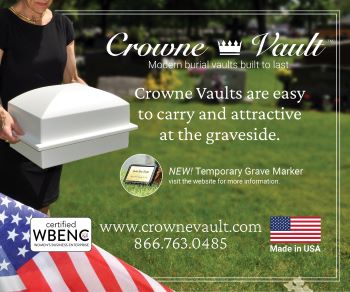Here’s another issue that’s bound to grow over time

American’s attend church less and join churches less than in the past. Some people believe that is one of many reasons that there seems to be less tradition with funeral services.
Now, according to the website helloprenup.com, among Americans, cohabitating is more common than marriage. That website states, “According to a Pew Research Center study of data from the National Survey of Family Growth, 59% of persons between the ages of 18 and 44 have lived with an unmarried partner at some point in their lives, compared to 50% who have ever been married”.
When you think about who has the right to control the final disposition of a dead human body, simply because of those numbers, there is bound to be more and more issues among family members and the cohabitating partner when one partner passes away. That is exactly what happened as described in this article about a Florida lawsuit about who has the right to control disposition of a dead human body — the cohabitating partner or the mother.
And now, a funeral home that thought it was just doing what it was asked to do, may face litigation for the services it conducted upon direction from whom it thought was a legally married spouse.
It seems to me that this is another “sticky” issue that funeral homes and crematories need to be on the look-out for when providing their services.
I was able to pull out the statute for my home state of Minnesota listing who has the right to control a deceased human body and here is what I found, in general, in order of authority (to view the entire statute you can click here):
- Advance directives and will of decedent
- The person appointed in a dated, written instrument
- The spouse of the decedent
- An adult child or majority of adult children of the decedent
- The surviving parent or parents of the decedent
- The adult sibling or the majority of the adult siblings
- The adult grandchildren or the majority of adult grandchildren
- The adult nieces and nephews of the decedent
- The person or persons acting as guardians
- An adult who exhibited special care and concern for the decedent
- An adult in the next degree of kinship
- The appropriate public or court authority
So, when I look at that statute, it appears to me that there is a high probability for dissension because a “cohabitating partner” would be, from my point of view, #10 on the list. That would give children, parents, and siblings a higher authority to decide on the funeral arrangements for the decedent. And, if there is any level of animosity between the surviving “cohabitating partner” and the rest of the family, the decision may be ripe for disagreement.
That fact is a great argument for cohabitating partners to have some type of written agreements as listed under #1 and #2. However, we all know that procrastination happens and many times those things just do not get done.
The same Minnesota statute that lists the order of control of a decedent disposition also has this clause in it that is meant to give funeral directors some cover, Subdivision 7. A funeral director or mortician shall not be subject to criminal prosecution or civil liability for carrying out the otherwise lawful instructions of the decedent or the person or persons whom the funeral director or mortician reasonably believes is entitled to control the final disposition.”
This is an issue that is beyond the scope, in legal terms, of what I know and understand. However, if you operate a funeral home or crematory I think it might be smart to have some legal counsel on what to do in this situation should you sense that someone without the authority to make these decisions wants to do so.

Tom Anderson
Funeral Director Daily
A Real-life case: Back in the 1980’s I had a case somewhat like this and sought advice from an attorney before I proceeded with any funeral arrangements. In my case the deceased was a man who had two children — each by a different, now deceased, mother. I sensed that neither really wanted to pay for the funeral, but both children wanted their father to be buried by their (two different) mothers. And, they were not nice to each other about the situation or at all ready to compromise.
My attorney told me to do nothing and tell them I was happy to proceed with their plans when they agreed to one and would put that in writing for me. Neither wanted to budge on their plan, and quite frankly, neither wanted to pay the funeral costs. Learning that the deceased was an honorably discharged veteran we were able to suggest a National Cemetery and explain it would save on costs. That suggestion did the trick and we proceeded to get that done . . . . and he was buried by neither of his ex-wifes and each child (reluctantly) paid the funeral costs — that were less than expected because of the VA benefits and VA cemetery.
And me. . . I was just glad it was over.
More news from the world of Death Care:
- People: Bethany Rasmussen named funeral director and embalmer. Northern Nevada Business Weekly (NV)
- Some Manitobans are going green when it comes to burials. CBC (Manitoba, Canada)
- Business Awards UK honors Funeral Services excellence: 2023 Winners and Finalists unveiled. Yahoo Finance
Enter your e-mail below to join the 3,463 others who receive Funeral Director Daily articles daily:
“A servant’s attitude guided by Christ leads to a significant life”




















